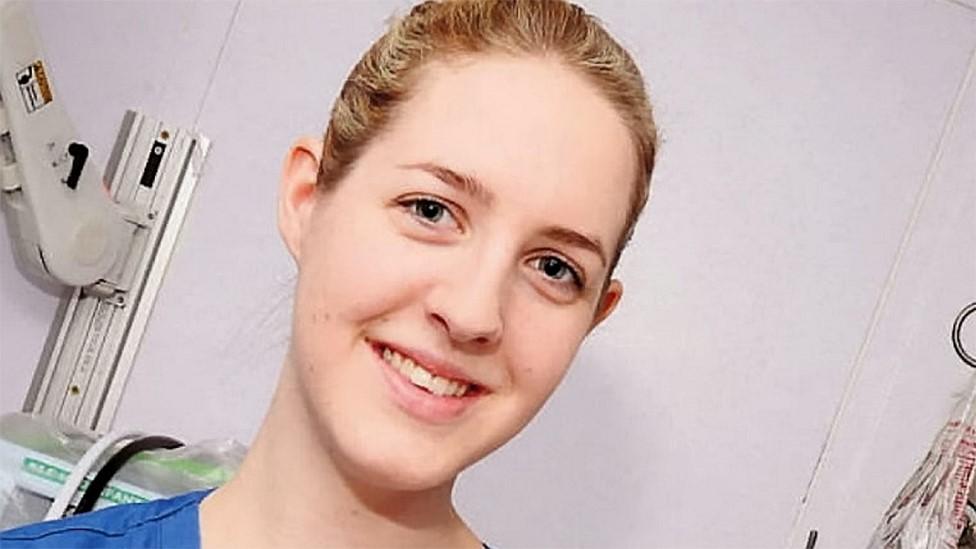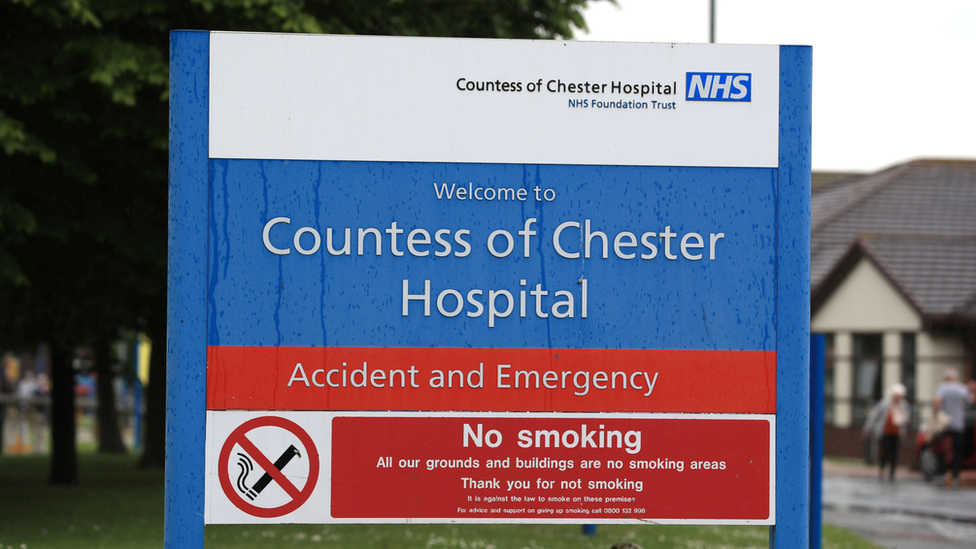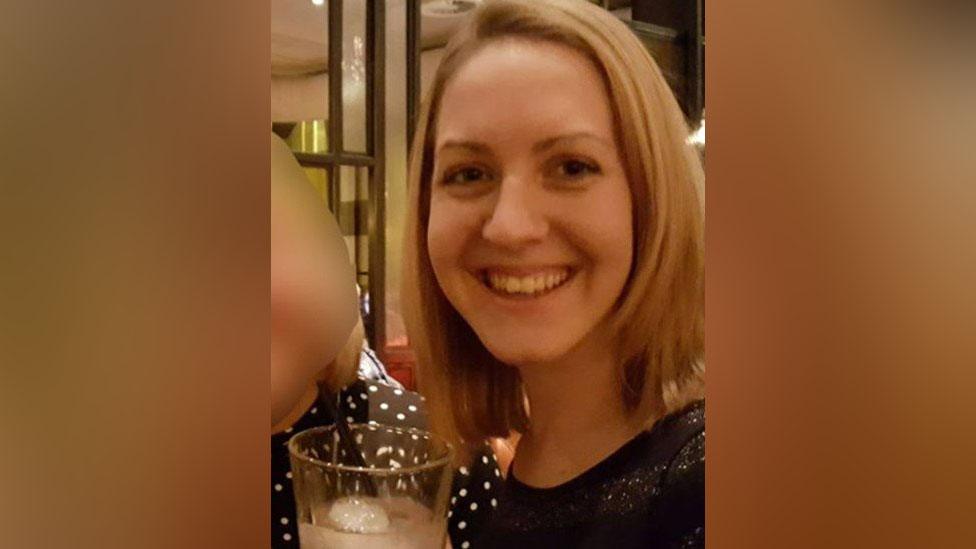Lucy Letby trial: Expert believes baby was given lethal air injection
- Published

Lucy Letby is accused of murdering seven babies and trying to kill 10 others
A medical expert has said it "stands to reason" but cannot be proven that a premature baby girl's "massive" stomach was caused by a lethal air injection.
Nurse Lucy Letby, 33, is accused of murdering the girl, who can only be referred to as Child I, at the Countess of Chester Hospital in October 2015.
Radiologist Dr Owen Arthurs agreed that X-rays of the baby's enlarged stomach would be consistent with her having been "deliberately injected" with air.
Ms Letby denies 22 charges against her.
The nurse, originally from Hereford, is accused of murdering seven babies and attempting to murder 10 others at the hospital between 2015 and 2016.
Jury members at Manchester Crown Court were previously told Child I was born prematurely in August 2015 at Liverpool Women's Hospital at the gestational age of 27 weeks, weighing 2Ibs 2oz (970g).
She was transferred to the Countess of Chester Hospital later that month.
It is alleged that before murdering Child I, Ms Letby attempted to kill the infant on 30 September and again during night shifts on 12 and 13 October.
'Precise cause'
The prosecution alleged she harmed the baby by injecting air into her feeding tube and bloodstream before she eventually died in the early hours of 23 October 2015.
Reviewing X-rays of the infant, Dr Arthurs said Child I's stomach that day was "striking" due to its "massive" appearance.
"It's quite unusual to see babies with this degree of dilatation of the stomach," he said.
Dr Arthurs said such an enlargement, through the presence of air, could cause "splinting in the diaphragm" and that could lead to "respiratory complications".
Asked how much air it would take to cause the stomach to expand to that degree, Dr Arthurs said: "We don't know, I don't think anybody really knows.
"Those experiments can't really be carried out; we can't experiment on babies giving them 50 or 100ml of air and taking X-rays.
"But, I would guess more than 20ml of air."
Prosecutor Nick Johnson KC asked, in the absence of any evidence of infection, whether "someone had deliberately injected air" into the Child I's stomach.
"I think that stands to reason," Dr Arthurs said.
But Ben Myers KC, defending, put it to Dr Arthurs that from X-rays alone it was "not possible to establish a precise cause" for the presence of air.
Dr Arthurs agreed that while he believed it "stands to reason" he could not definitively state the precise cause.

The babies were being cared for on the neonatal ward at Countess of Chester Hospital
Registrar Dr Rachel Chang, who was on shift the day Child I died, later told the jury through tears how she could not explain the infant's death.
Dr Chang worked with other senior medics on Child I throughout the morning of 23 October, with numerous rounds of CPR and eight doses of adrenaline administered to no avail between 01:16 and 02:10 BST.
Dr Chang said: "I've never been able to truly explain it - it was awful.
"I knew we'd done everything, I trusted everyone around me."
In a statement read to court, nurse Christopher Booth said the whole neonatal team was "very fond" of Child I and that they were "heartbroken" upon her death.
"I think everyone was extremely upset. It was gut-wrenching."
The trial continues.

Why not follow BBC North West on Facebook, external, Twitter, external and Instagram, external? You can also send story ideas to northwest.newsonline@bbc.co.uk
Related topics
- Published1 February 2023

- Published10 February 2023

- Published24 January 2023

- Published23 January 2023

- Published20 January 2023
